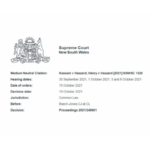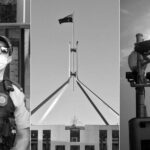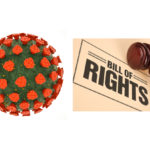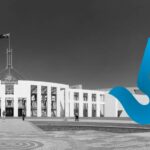Prime Time for a Federal Bill of Rights: NSWCCL’s Pauline Wright on Protecting Freedoms
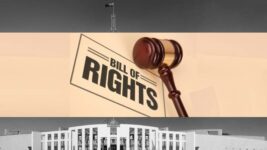
Around 90 national security bills have been passed at the federal level since the 2001 twin towers attacks in New York. Draconian in their reach, these laws are said to target terrorists, however they actually encroach upon the rights and liberties of all citizens and residents.
The latest such legislation is the Identify and Disrupt Bill: another Peter Dutton special.
It established a three-tiered warrant system that empowers the AFP and the Australian Crime Intelligence Commission to hack into personal online accounts, and take them over.
Agents can gain access to a device and “add, copy, delete or alter data”. They can gather information from an online account for investigative purposes and even lock its owner out. And these laws exemplify how measures that appear to be aimed solely at serious criminals can easily affect us all.
When being issued as part of a criminal investigation, all three warrants can be applied to the online account or the electronic device of a nonsuspect if the authorities have reason to believe a suspect has or may access the account or device in question.
The Capability
Back in 2019, Dutton, then home affairs minister, was pushing for a framework of laws that would establish a hub linking federal, state and territory citizen ID photo databases, so that law enforcement could match images taken from CCTV footage with those in the system in real time.
This framework would utilise biometric facial recognition technology. The plan has since stalled in parliament. But a manual version of it, known as the Capability, has been operating at the federal level using passport photos, which then attorney general George Brandis established in 2016.
Earlier this year, however, it came to light that several Australian police forces, including the AFP, had been trialling the use of software produced by US company Clearview AI that allows access to a database containing millions of photos scrapped from the web without permission.
The Australian Information Commissioner announced this month that Clearview is in breach of local privacy laws and ordered them to cease collecting these images, although the tech company has suggested that our laws don’t apply to how it operates over in the States.
Enshrining rights in law
Recent pandemic lockdowns and vaccine mandates have led a growing number of Australians to question whether their rights have been breached by the COVID measures and restrictions applied over the last two years, only to find that federal laws don’t protect most freedoms and liberties.
And the NSW Council for Civil Liberties suggests that the recent heightened awareness around rights issues has made it an ideal time to promote the need for a national bill of rights that would enshrine the freedoms and responsibilities of all citizens in law at the federal level.
Sydney Criminal Lawyers spoke to NSWCCL president Pauline Wright about the ever-growing Australian surveillance state, the overreach of the numerous terror laws that have been passed this century, and how laws that protect the rights of all would impact our society.
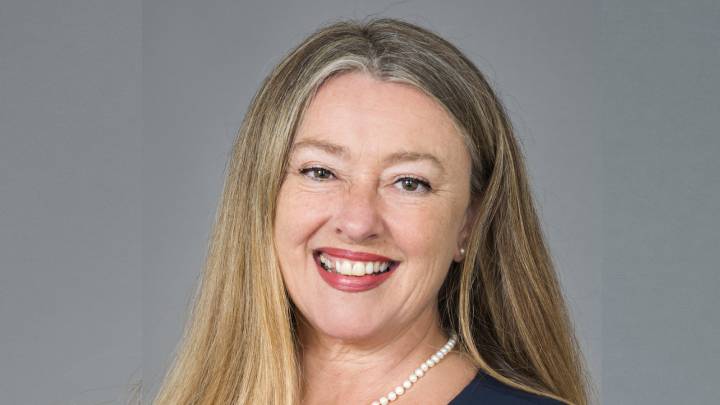
Several Australian law enforcement agencies, including the AFP, were found to be trialling facial recognition software developed by US tech company Clearview AI, which enables police to match images with a huge database sourced from the web without permission.
Pauline, why should this be of concern for Australians?
Collecting sensitive information without consent is cause for concern – it’s not just theoretical – because that sort of information can be replicated and used for identity theft.
We don’t have any control over that information once it has been scrapped off the internet. We have no control over what happens with it, how securely it’s kept, the purposes it’s put to, and whether any of those uses are legitimate.
There has been no proper testing of that technology to make sure it’s effective. Will it lead to people being wrongly identified, arrested or even charged? There are so many legitimate concerns about it.
The Clearview incident and the Coalition’s proposal to create a vast network of facial recognition technology are considered moves towards what’s known as the surveillance state.
The surveillance state is a concept that’s increasingly being applied to this nation. How would you describe what the Australian surveillance state is?
In Australia, we’ve seen a lot of moves that leave us open to being called a surveillance state.
Most recently, we’ve had the Surveillance Legislation Amendment (Identify and Disrupt) Bill, which is known by some as the hacking bill. It basically allows law enforcement agencies to hack our online accounts, devices and social media profiles.
This is a real concern, as it gives really broad powers to law enforcement agencies, enabling unprecedented widespread surveillance, and it doesn’t have proper protections for privacy.
There are some safeguards in it, but they’re the exceptions. And they’re so broad that any protection that we might expect from them is not guaranteed or even realistically enforceable.
At the beginning of the pandemic there was a move to implement the COVID tracking app, which raised a lot of concerns around privacy issues. That initiative failed.
What we’re left with is the QR code check-in app. This monitors people’s movements in terms of whether they become exposed to a COVID positive person.
Police have been blocked from using this information to investigate crime because there were concerns nationally about this happening. And now the check-in app seems to be an everyday part of life.
Are there concerns that this system may become normalised to the point that it sticks around after COVID has eased?
That is the trouble with something like that: once it becomes normalised and people get used to it, they start to think it’s okay. But, in fact, the security of the data that can be collected by QR codes is of concern.
For instance, if you have a state agency, they might be subject to rules about what they can do with it due to privacy, whereas a private business might not be subject to the same sorts of rules. So, they might be able to retain your information and use it for their own marketing purposes.
That begs the question about how secure your data is, and whether it can be misused. There is no oversight or scrutiny of what that data can be used for.
So, we’ve got to guard against making QR code check-ins normalised.
We’ve got to make sure that these extraordinary measures – that were brought in and required at an extraordinary time to serve the greater good – be wound back once the threat of that has abated through widespread vaccination.
What we want to see is these measures being wound back and not continued to be used.
Ninety-odd pieces of counterterrorism and national security legislation have been passed federally with bipartisan approval since 9/11. These laws are often raised as incrementally eroding the rights of all citizens.
So, two decades after the commencement of this process, how are we seeing the consequences of these laws?
Ninety two pieces of legislation have been brought in now in Australia. You need to bear in mind that we had none before 9/11 – like zero. And now we’ve got 92 pieces, and the volume of it is really extraordinary.
Australia has no bill of rights, and that has allowed the Australian government to bring in legislation that it would not have been able to have enacted in other nations, like the United Kingdom, the United States and Canada, where they have bills of rights or human rights acts.
We have control orders. We have preventative detention orders. We have given the home affairs minister the power to strip us of our Australian citizenship if we are dual citizens.
There is the mandatory retention for all Australians’ metadata for two years, which can be accessed without warrants.
All of those powers are absolutely extraordinary. And the point is there’s really no evidence that they have been necessary.
The argument has been that those extreme powers that we do have enhance Australia’s national security, but we doubt that some of those extreme powers have been effective, even though they fundamentally impact on our rights.
When he was the Independent National Security Legislation Monitor in 2012, Bret Walker SC said that the control orders that Australia had brought in were not effective, not appropriate and they were not necessary.
Now that’s pretty damning of the powers we’ve given our government. The point is that they undermine Australian society in pretty extraordinary ways.
They effectively turn the criminal justice system about-face. It used to be that you couldn’t be punished unless you actually committed a crime.
Now, we allow people to be held in detention beyond their sentence just in case they might commit a crime. And there are offences of planning a criminal act, which would never have been counted in the past.
So, we are in fact convicting people of offences that they haven’t actually carried out. This is a real problem.
Yes, we might have had some increased national security, but what has that meant for us as a society? It has made us more fearful. It has made us less connected and cohesive.
Certain sectors of our community feel targeted by these laws, like Muslim communities. They have felt that they’ve been targeted by these powers, even though there are other sectors of society that should be targeted, such as far-right extremists.
We need to be looking at evidence-based policies, not these extreme laws that negatively affect our society in the longer term.
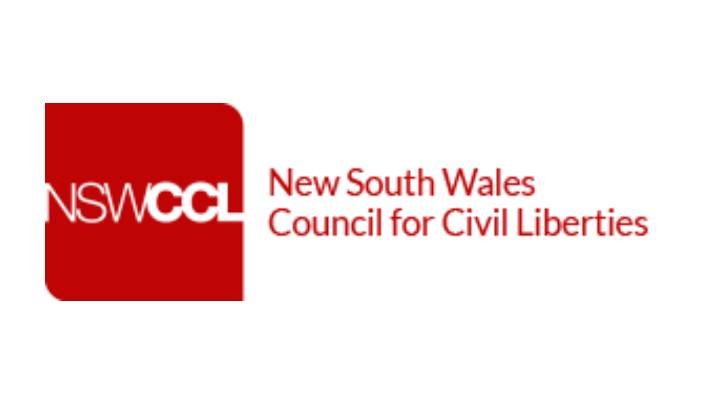
Australia is notorious for having a lack of rights protections. It’s the only liberal democracy without a federal bill of rights protecting liberties and freedoms.
Would strengthened rights protections serve to stymie the proliferation of the laws that are together building the surveillance state, or could it even assist in turning it back?
Turning it back is really tough work. But it’s something we need to try and achieve. Most of these laws have sunset provisions, but they keep being extended. Civil society needs to fight to have them overturned as time goes on.
We need a federal Human Rights Act. We need one in NSW. We’re the only liberal democracy in the world not to have some form of human rights legislation at the top level.
We are alone in that. And that means we don’t have a discourse around human rights. We don’t ensure that each piece of legislation that is passed in Australia is subject to proper scrutiny and is tested against standards for human rights protection.
All of those things would happen if we had a Human Rights Act in Australia, but we don’t.
Without that we’re in danger of seeing ourselves becoming more and more subject to surveillance being ramped up, with that growing trend of surveillance across Australia.
Without a Human Rights Act these laws will just proliferate and we will become more and more divided from our Five Eyes allies in terms of our ability to protect our citizens’ rights against the excessive power of government.
And unfortunately, we see those in power seeking to hold onto power and increase their power. That’s just a phenomenon of power.
What we don’t want to see in Australia is for that to be taken so far that we get a despotic-type government that abuses those powers in ways that start to really affect us as individuals.
Through COVID-19, we’ve seen how easy it is for governments to give themselves pretty extreme powers and how fragile and precious our civil liberties are.
And lastly, Pauline, the people who drafted the Australian Constitution considered including a bill of rights but ultimately decided against it.
Every couple of decades since, there has been a concerted effort to see one at the federal level. The last time was the Rudd government in 2008 with the Brennan inquiry. But both major parties continue to resist establishing such laws.
The NSWCCL has long called for a federal bill of rights. But with such reluctance amongst those in power, what’s needed to get it on the agenda and across the line?
We need to raise awareness in society about what a Human Rights Act or a Charter of Human Rights would look like and what a difference it would make to us.
Some of that awareness has been peaked through COVID-19. Some people who thought that protecting the notion of human rights and civil liberties was abstract, now see that it’s real – there is a real need to protect them.
So, now is a good time to embark on a campaign of public awareness so that people can trust that all of our rights covered in the United Nations human rights instruments, for instance, can be and should be protected.
We want governments to be humane to the powerless in society and you can’t ensure that without having a set of rules to test legislation when it’s coming in. And it would provide us in civil society with common ground for discussing ethics, both beyond and within government.
It also allows us to look at how we balance and adjudicate competing rights. And we have seen how that works in times of pandemic, with the greater population’s right to health coming into conflict with the individual right to freedom of movement.
A Human Rights Act would provide a mechanism to better weigh up those rights and look at how they should be protected in practice. It allows a discourse in that. And it’s all about public awareness and encouraging debate and discussion around rights and liberties.



